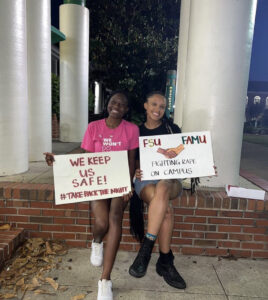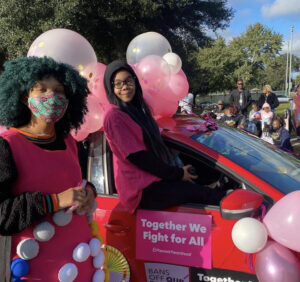
The United States Supreme Court overturned Roe v. Wade on June 24, undoing the 1973 decision that gave women the constitutional right to have an abortion.
Since then, abortion bans have gone into effect in 12 states.
While Florida didn’t fully ban abortion, the window to have one has decreased to 15 weeks. In the past two months students in Tallahassee have expressed many concerns regarding their sex lives and reproductive rights.
Consensual sex has always been a huge concern on campuses in Tallahassee and unfortunately has been overlooked in certain situations. Birth control, including abortions, gave female students an option of not conceiving in case they were in a very common situation.
Kayla Gonzalez, a third-year political science major at Florida State University, now has concerns regarding her birth control.
Gonzalez started using birth control after a pregnancy scare during her freshman year in hopes of never running into a situation like that again. After finding out about Roe V. Wade, she went to her local Planned Parenthood and asked to replace her implant in case the overturn affects her ability to go to a Planned Parenthood close to her.
“My cousin in Texas told me that her closest Planned Parenthood was getting shut down because of the overturn, she has to drive four hours just to get her implant replaced,” Gonzalez said.

Students have said that their sex lives have become nerve wracking since the overturning of Roe v. Wade. Isaiah Wood is a volunteer at Planned Parenthood in Tallahassee and he has run into students who have described their current sex lives as anxious because of the fear of putting their partners in a difficult situation if they were to conceive.
While Florida did not fully ban abortions, students are scared to have sex, Wood said. He believes this is unhealthy for students’ sex lives because they don’t have the chance to build a trusting relationship with their partner.
“Though condoms and other birth control options are available, students understand 99% doesn’t mean 100%. If the last resort is at risk of being banned, students will either avoid sex altogether or build unnecessary tension,” he said.
Students continue to take advantage of their privilege to be near a Planned Parenthood and receive birth control, but the majority say there is no reason why they should be this nervous to not have the right to practice their rights. Organizations such as Generation Action are continuing to find ways to protect the reproductive rights for local students, and students are also advocating as well.